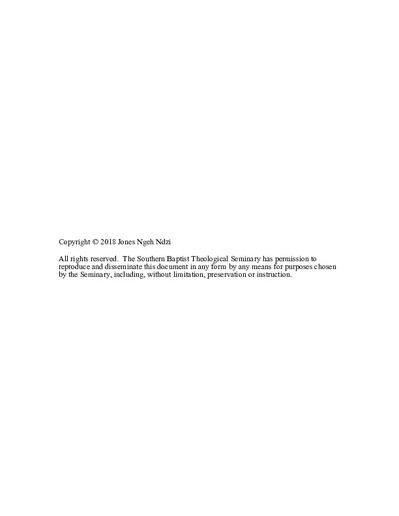| dc.description.abstract | This dissertation argues that four prominent exodus categories serve the author of Hebrews in his explication of Christ’s redemptive accomplishment. Attending to the author’s use of exodus language it analyzes relevant texts and units of the epistle where the author seems to employ the exodus categories that have been identified. Chapter 1 introduces the research, summarizes previous scholarship on the subject and enunciates the thrust of the project.
Chapter 2 takes up the first category dealt with in this work, namely, “entry” into the land. Included in the chapter is an exegesis of a passage that casts Christ’s exaltation in light of an exodus entry as well as passages that portray the final hope of believers in terms of an entry after the manner of Christ’s.
Chapter 3 tackles the next category, “forerunner.” Employing a word study, exegetical analysis of relevant texts and biblical theological considerations, this chapter shows that Christ Jesus is the leader of and forerunner of God’s new exodus people who succeeds where his antecedents failed.
Chapter 4 takes on yet another category, “deliverance.” The unique exodus language with which Christ’s resurrection is described in 13:20 shows the author’s interest in this exodus category. More overtly, exodus deliverance language is applied to God’s people in Hebrews 2:14-18.
Chapter 5 deals with the most prominent exodus category in Hebrews, namely, pilgrimage. This chapter argues that Hebrews 3-4 which is dominated by the wilderness motif and the author’s contrast between Sinai and Zion in chapter 12 are all indicative of the fact that the author conceived of the circumstances of his addressees in terms of an exodus journey.
Chapter 6 sums up the thrust of the project. The textual evidence that has been set forth to substantiate the thesis of this research seems to validate the claim that the author of Hebrews had an interest in helping his readers think of their situation in terms of the exodus. The findings of this research are also set in the context of the broader discussion on Hebrews’ use of the OT. | en_US |

